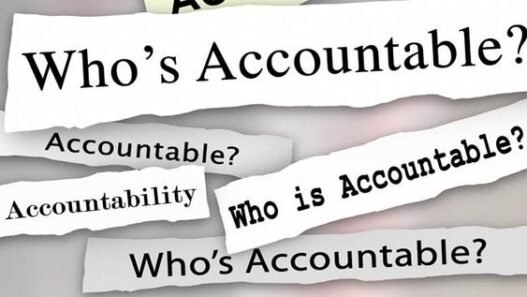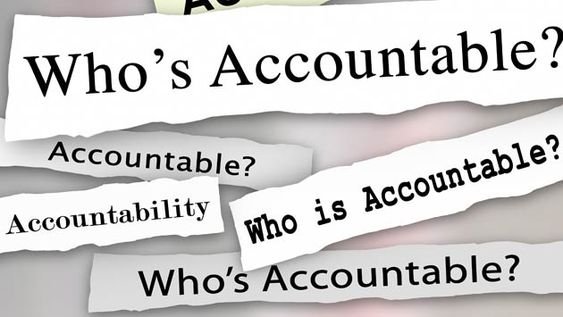In the landscape of governance, probity and accountability stand as foundational pillars essential for fostering trust, integrity, and ethical leadership. In Ghana, the persistent challenges of corruption and lack of accountability have eroded public trust in government institutions, leading to widespread calls for reform. This article explores the significance of probity and accountability in governance and emphasizes the urgent need for stronger measures to combat corruption.
“Action without thought is empty. Thought without action is blind.”
Osagyefo Dr. Kwame Nkrumah, Ghana’s first president
Understanding Probity and Accountability
Probity refers to the quality of having strong moral principles and integrity, particularly in public service. It embodies transparency, honesty, and the ethical conduct expected from public officials. Accountability, on the other hand, is the obligation of public officials to report, explain, and be answerable for the consequences of their actions. Together, these concepts form the bedrock of good governance, ensuring that leaders act in the best interests of the people they serve.
The Importance of Probity and Accountability
- Restoring Public Trust: Transparency in governance fosters public confidence. When citizens believe that their leaders are acting in their best interests and are held accountable for their actions, trust in government institutions grows.
- Promoting Good Governance: Accountability ensures that public officials are answerable for their decisions and actions. This discourages corruption and abuse of power, promoting effective governance that prioritizes the needs of the populace.
- Enhancing Service Delivery: When leaders adhere to principles of probity and accountability, public services improve. Citizens receive better services, as resources are utilized effectively and corruption is minimized.
- Strengthening Democracy: A democratic society thrives when its leaders are held accountable. Probity in governance allows for citizen participation, as people feel empowered to demand transparency and accountability from their representatives.
Challenges to Probity and Accountability in Ghana
Despite the constitutional and legal frameworks designed to promote probity and accountability, numerous challenges hinder their effective implementation:
1. Corruption
Corruption remains a significant barrier to achieving probity in governance. Reports of bribery, embezzlement, and fraudulent practices within government institutions undermine the efforts of honest officials. Corruption not only diverts public resources but also stifles economic development and exacerbates poverty.
2. Weak Institutions
Weak institutional frameworks and inadequate enforcement mechanisms contribute to the persistence of corruption. Regulatory bodies often lack the resources, capacity, and independence needed to investigate and prosecute corrupt practices effectively.
3. Lack of Transparency
A culture of secrecy within government institutions fosters an environment where corruption can thrive. Limited access to information and insufficient transparency in public procurement and financial management can create opportunities for malpractice.
4. Public Apathy
Public apathy towards governance issues and a lack of civic engagement can impede efforts to promote accountability. Citizens may feel disillusioned or powerless to effect change, allowing corrupt practices to persist unchallenged.
Call for Action: Strengthening Probity and Accountability
To combat corruption and enhance governance in Ghana, urgent action is needed on several fronts:
1. Institutional Reforms
Strengthening institutions tasked with promoting accountability, such as the Commission on Human Rights and Administrative Justice (CHRAJ) and the Office of the Special Prosecutor, is essential. Providing these institutions with adequate resources and ensuring their independence can enhance their effectiveness in combating corruption.
2. Enhancing Transparency
Implementing measures to increase transparency in government processes is vital. This includes making public financial information accessible, establishing open procurement systems, and promoting public participation in decision-making processes.
3. Promoting Civic Engagement
Encouraging citizen participation and engagement in governance can create a more informed and active electorate. Civil society organizations play a crucial role in raising awareness about governance issues and empowering citizens to hold their leaders accountable.
4. Strengthening Legal Frameworks
Revising and strengthening anti-corruption laws can provide a clearer framework for prosecuting corrupt practices. Implementing strict penalties for corrupt activities and protecting whistleblowers can deter malfeasance and encourage reporting of corruption.
5. Educational Campaigns
Public awareness campaigns that educate citizens about their rights and the importance of accountability in governance can foster a culture of probity. These campaigns should emphasize the role of citizens in demanding transparency and holding public officials accountable.
Conclusion
The call for probity and accountability in governance is not merely an ideal; it is a necessity for the progress and development of Ghana. As we navigate the complexities of governance, it is essential to reaffirm our commitment to ethical leadership and the rule of law. As Ghanaian anti-corruption campaigner Akwasi Addai Odike aptly stated, “For Ghana to realize its full potential, we must confront corruption with the seriousness it deserves. Integrity in governance is not just a choice; it is our only path forward.”
By taking decisive action against corruption and fostering a culture of accountability, Ghana can build a more transparent, equitable, and prosperous society that serves the interests of all its citizens.





















